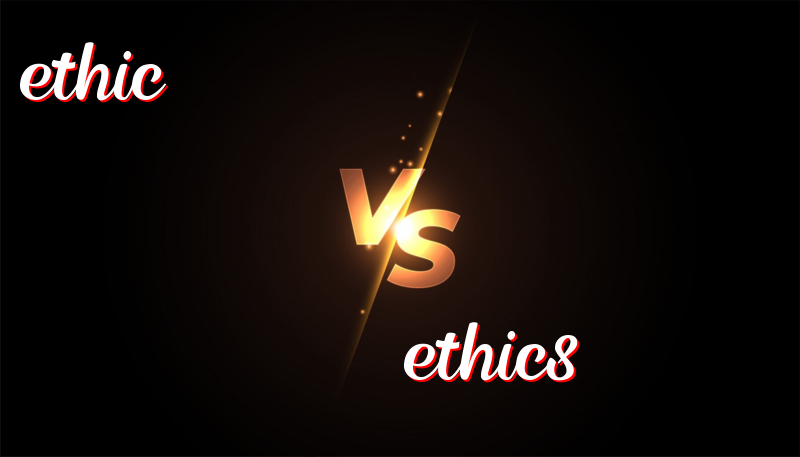英語單詞ethic 與 ethics的區別
January 06, 2025
Ethic與Ethics的區別
在英語中,”ethic”與”ethics”是兩個經常被混淆的詞語,儘管它們字形相似,但在其使用情境及涵義上有顯著差異。本文將詳細描述它們的歷史、使用方法以及如何區分這兩者,並提供記憶小技巧,以幫助學習者更好理解這兩個詞彙。
詞源與歷史
“Ethic”源自於希臘語「ethos」,意指「性格」或「習慣」。通常指個人或群體的行為準則。一方面,”ethics”來自同一詞根,但其使用範圍更廣泛,指的是道德哲學或系統性的道德原則。
如何使用這些詞語
Ethic
“Ethic”通常用作單數名詞,表示一種特定的道德準則或信念,常常指個體或特殊群體的價值觀。
- The company has a strong work ethic that promotes dedication and excellence.
這家公司有強烈的工作倫理,促進奉獻和卓越。 - Her personal ethic prevents her from cheating on exams.
她的個人道德防止她在考試中作弊。 - The artist’s ethic is reflected in the uniqueness of his creations.
藝術家的道德體現在他作品的獨特性上。 - Cultural ethic often shapes people’s behaviors and decisions.
文化倫理常常塑造人們的行為和決策。 - He follows his own moral ethic rather than societal norms.
他遵循自己的道德標準,而非社會規範。
Ethics
“Ethics”是復數名詞,專指道德原則,並且常用在道德哲學或學術領域,指道德行為的研究。
- Ethics in journalism is crucial for maintaining public trust.
新聞道德對維持公眾信任至關重要。 - The field of medical ethics explores the moral implications of medical practices.
醫學倫理研究醫療實踐的道德含義。 - Ethics help guide decision-making in businesses.
倫理指導公司決策制定。 - There is a rich tradition of ethical debate in philosophy.
哲學中有豐富的道德辯論傳統。 - The ethics committee reviews the research proposal.
倫理委員會審查研究提案。
記憶小技巧
要記住這兩個詞的差異,可以使用以下技巧:單數的”ethic”類似於「道德准則」或「個人信念」;而”ethics”通常指一整體的「道德原則」或「倫理學」。這樣,當提到個體或特定準則時使用”ethic”,而涵蓋更廣泛的道德理論時則使用”ethics”。
總結
總之,”ethic”指的是個體或群體的道德標準,而”ethics”指的是道德的學術研究和廣泛的道德慣例。學習者應該注意這些細微的語義區分,以便正確使用這兩個詞。

Leave a Reply
You must be logged in to post a comment.